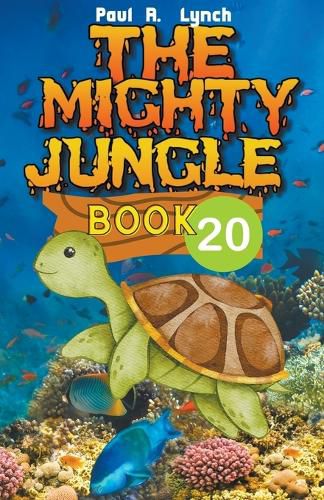Readings Newsletter
Become a Readings Member to make your shopping experience even easier.
Sign in or sign up for free!
You’re not far away from qualifying for FREE standard shipping within Australia
You’ve qualified for FREE standard shipping within Australia
The cart is loading…






This title is printed to order. This book may have been self-published. If so, we cannot guarantee the quality of the content. In the main most books will have gone through the editing process however some may not. We therefore suggest that you be aware of this before ordering this book. If in doubt check either the author or publisher’s details as we are unable to accept any returns unless they are faulty. Please contact us if you have any questions.
The seas and oceans play a vital role in the earth's climate.
One of the most important services the ocean provides to human society is the provision of food through captured fisheries and farms. This includes fish, invertebrates, plants and, for some cultures, marine mammals and seabirds for direct consumption or as feed in aquaculture or agriculture. These marine food sources have major benefits for human health and nutrition, economic returns and employment.
Phytoplankton and algae form the basis of aquatic food webs. They are eaten by primary consumers such as zooplankton, small fish and crustaceans. Primary consumers are in turn eaten by fish, small sharks, coral and baleen whales. The ocean's top predators include large sharks, swordfish, dolphins, toothed whales and large seals. Humans consume aquatic organisms from every part of this food web.
The seas and oceans are home to amazing species of animals.
The Earth's oceans are home to millions of animal and plant species, as well as potentially millions more that are so far undiscovered. They are delicately balanced ecosystems and their healthy function is key to the balance of all life on Earth.
$9.00 standard shipping within Australia
FREE standard shipping within Australia for orders over $100.00
Express & International shipping calculated at checkout
This title is printed to order. This book may have been self-published. If so, we cannot guarantee the quality of the content. In the main most books will have gone through the editing process however some may not. We therefore suggest that you be aware of this before ordering this book. If in doubt check either the author or publisher’s details as we are unable to accept any returns unless they are faulty. Please contact us if you have any questions.
The seas and oceans play a vital role in the earth's climate.
One of the most important services the ocean provides to human society is the provision of food through captured fisheries and farms. This includes fish, invertebrates, plants and, for some cultures, marine mammals and seabirds for direct consumption or as feed in aquaculture or agriculture. These marine food sources have major benefits for human health and nutrition, economic returns and employment.
Phytoplankton and algae form the basis of aquatic food webs. They are eaten by primary consumers such as zooplankton, small fish and crustaceans. Primary consumers are in turn eaten by fish, small sharks, coral and baleen whales. The ocean's top predators include large sharks, swordfish, dolphins, toothed whales and large seals. Humans consume aquatic organisms from every part of this food web.
The seas and oceans are home to amazing species of animals.
The Earth's oceans are home to millions of animal and plant species, as well as potentially millions more that are so far undiscovered. They are delicately balanced ecosystems and their healthy function is key to the balance of all life on Earth.